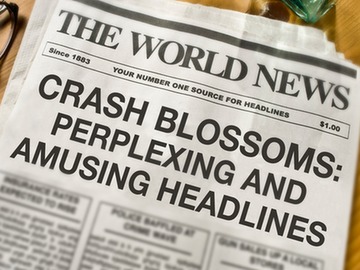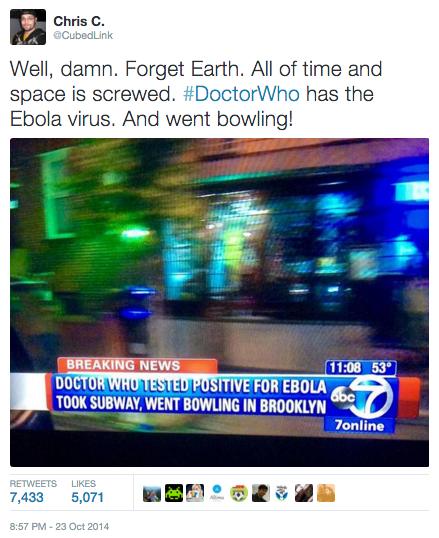We've all experienced it: you're scanning the latest news headlines, and one pulls you up short not because of the story behind it, but because of the words in it. A headline blares "Whale watching boat carrying 27 sinks," and you wonder: Why is the whale watching a boat, and how can you tell that it's watching the boat? And why was the boat carrying 27 sinks?

You've encountered what's called a "crash blossom": a headline that is ambiguous because of its wording or punctuation (or absence thereof). The above crash blossom would have been easier to parse with a hyphen between whale and watching and perhaps by substituting capsizes for sinks.
While crash blossoms themselves are as old as newspapers, the term dates back to 2009, when editor Mike O'Connell saw an ambiguous headline that appeared in the newspaper Japan Today—"Violinist Linked to JAL Crash Blossoms"—and wondered in the Testy Copy Editors forum, "What's a crash blossom?" And thus the word for these ambiguous statements was born, and examples of crash blossoms began to flood the linguistics blog, Language Log. Like eggcorns, crash blossoms test a reader's sprachgefühl, or sense of language, and are usually good for a laugh. Here are a few choice crash blossoms from recent years:
A Parade Hailing Russia’s World War II Dead and Marching Further From the West
More Midwest Twisters: Why Is Oklahoma Tornado Vexed?
Scientists count whales from space
And:

Words We're Watching talks about words we are increasingly seeing in use but that have not yet met our criteria for entry.




